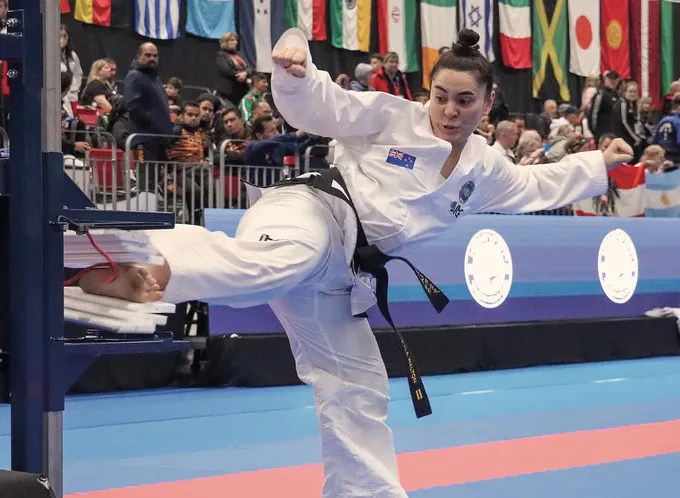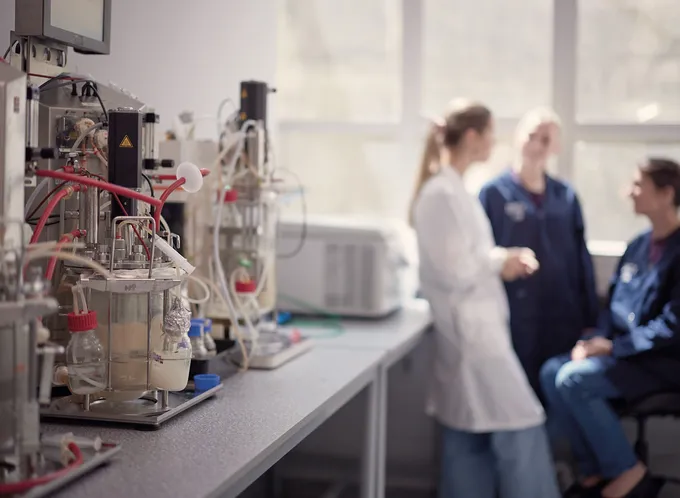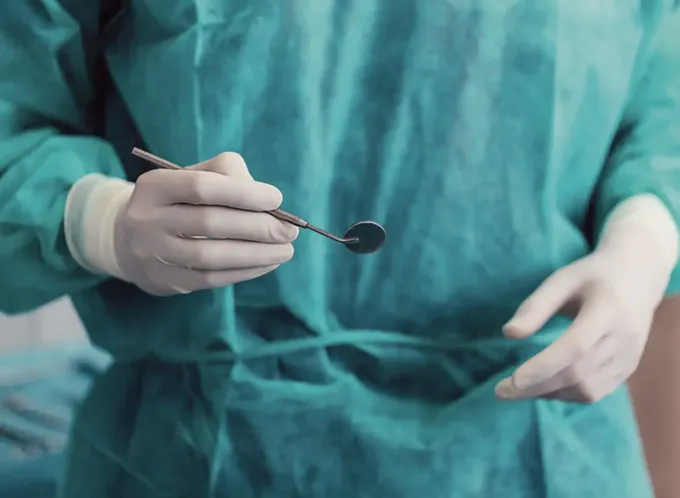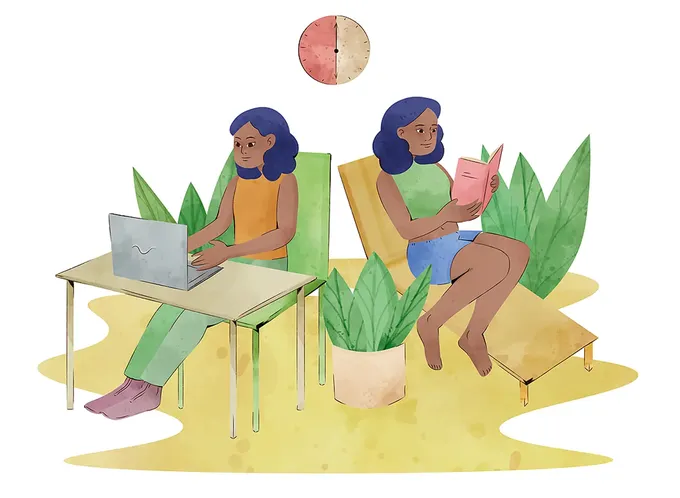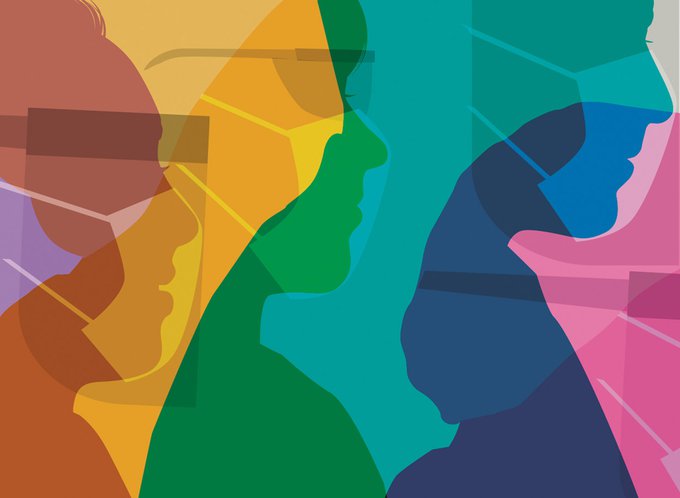From starting med school at 30 with a newborn at home to advocating for change in an unequal health system, Dr Emma Wehipeihana talks about her path to becoming a surgeon in her debut memoir "There’s a cure for this."
Dr Emma Wehipeihana vividly remembers her first day in surgery. As a med school student spending an afternoon on the ward, she was plucked from her group, told to scrub up and thrown right into the thick of it.
“They got me holding the camera and doing some suturing, I think it was a laparoscopic cholecystectomy. The whole time I was just thinking, ‘Holy shit, this is so cool.’ As a student, it makes your day just to be noticed.
But to have someone actually take you aside and teach you and say ‘you can do this’. That’s like catnip! There was nothing else I wanted to do from that day on.”
Nearly a decade later, she’s now a first-year surgical registrar at Auckland’s Middlemore Hospital. The hours are long and the work all-consuming, but surgery is still the highlight of a twisting career path that’s already included columnist, political commentator and recruitment specialist. Earlier this year, she also added award-winning author to the list.
As she writes in her memoir, a doctor’s life is ‘an ocean of stories’. But these tales stretch far beyond the hospital corridors. Bouncing between funny and poignant, the book covers memories from an unconventional childhood, binge drinking in dingy student flats, feeling like an outsider and finding identity and the mentors and strong women who guided her along the way.
Front and centre is her feminist activist mum Colleen. A campaigner for equal pay and champion for single mothers' rights, she raised her daughter in what Emma lovingly describes as a “house of Lower Hutt lesbians”, took her to the picket lines as a kid and taught her to follow her heart.
“Being raised in a massive community of women, it was modelled to me early on that you could live your life in a way that suited you and your values and the things you love,” Emma says. “And it didn’t have to be the same way that everyone else did things.”
Years later, it was her own daughter Nico (now 9) who prompted the career epiphany that would lead her to medicine. Bored with corporate recruitment and about to go on maternity leave, she started thinking about what she would tell her daughter about her life.
“I was scratching around to work out what I was doing in my career, and I kept coming up short. So I wrote a list of all the things I wanted, like intellectual stimulation and something that offered social good.
“I can’t remember when medicine came up, but once it launched in my brain, it stayed there. I had no clue. Initially I wanted to do emergency medicine because that’s what I knew from TV! One thing led to another, and thank god this feels right because it was such an upheaval and commitment.”
One foot in front of the other
Entering med school under the Māori and Pacific Admission Scheme (MAPAS), she recalls in her memoir how classmates asked for the answers for an exam because "MAPAS students are given the answers beforehand".
For Emma (Ngāti Tukorehe, Ngāti Porou), racist undertones were an added weight to the notoriously competitive pre-med year. “It’s the sort of thing you feel so personally,” she says. “The first year was really horrible. Having a newborn at the time was actually helpful because I couldn’t really engage in the feelings, I just had to keep putting one foot in front of the other.”
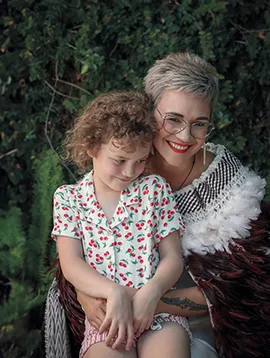
These days, she believes things are getting better. But protecting other vulnerable students from racism and pushing back against the broader systemic inequalities of the health system are part of her calling in medicine.
She nods to organisations like Te Ohu Rata o Aotearoa, Hāpai Te Hauora and pioneering Whangārei health practice Ki A Ora Ngātiwai as helping to lead the charge. “I loved working with Ki A Ora Ngātiwai as a student because they see people in their entirety. They have longer consult times and will sort out someone’s housing or WINZ stuff, look at the kids’ sore throats, all of that at the same time.”
More recently, Middlemore started an initiative to catch up on wait list surgeries on Saturdays, with a focus on prioritising Māori long-wait patients.
“Of course, there will always be those people who aren’t interested in Māori health equity or who don’t believe there’s a problem,” she says. “But I’ve noticed that it’s all about how you frame things. If you have people who are willing to learn and understand how the system has been set up to actively disadvantage Māori, then they kind of go, ‘Well, that’s terrible. I didn’t personally do that. But I can contribute to making it better.’ Then it’s something that we can all be part of.”
Love for the job
Whether it’s a stroke of luck or a natural superpower, Emma says she never once felt queasy as a student on the ward or a junior in the operating theatre.
“Weirdly enough, I quite like blood and pus and all of that stuff,” she laughs. “I don’t know if it’s being brought up on 90s action films or what! I wouldn’t say that I love poo, but working in general surgery, there’s quite a lot of it. I do like the parts of the body that make it.”
Working in medicine, she says, is about stamina. Facing gruelling long shifts, staff shortages, complex cases and a host of mounting pressures, it’s the camaraderie with colleagues that gets her through the hard days.
“Surgery is team-based so you have the same people around you that you get to know really well. I actually love my job. And when I’m away from it I think, ‘Why do I love it?’ Because god, the hours are terrible. There’s a chronic sleep deficit, and I might not have seen my daughter for a week. But there’s nothing else in medicine I’m as passionate about as general surgery. Operations are pretty much the most fun thing you can do with your time at work.”
And Nico, the inspiration for everything, loves that her Mum’s a doctor.
“Growing up, she was the paediatric practice patient for me and my med school friends, so she’s been surrounded by all of these young women training as doctors. She asked me one day, ‘Can boys be doctors too?’ Hopefully, that shows that I’m doing for her what Mum did for me – role modelling strong women doing their own thing.”
Know someone who might enjoy this?
Read this next
-
November 2023
Taking on the world in taekwon-do
-
November 2023
The fridge and beyond
-
November 2023
When MAS was there for me
-
November 2023
Spreading the word on wellness
Professional life
See all-
March 2021
Made for today a century ago
-
March 2021
The great brain gain
-
March 2021
A hectic, horrific working holiday
-
March 2021
Smooth sailing for Southern Spars
